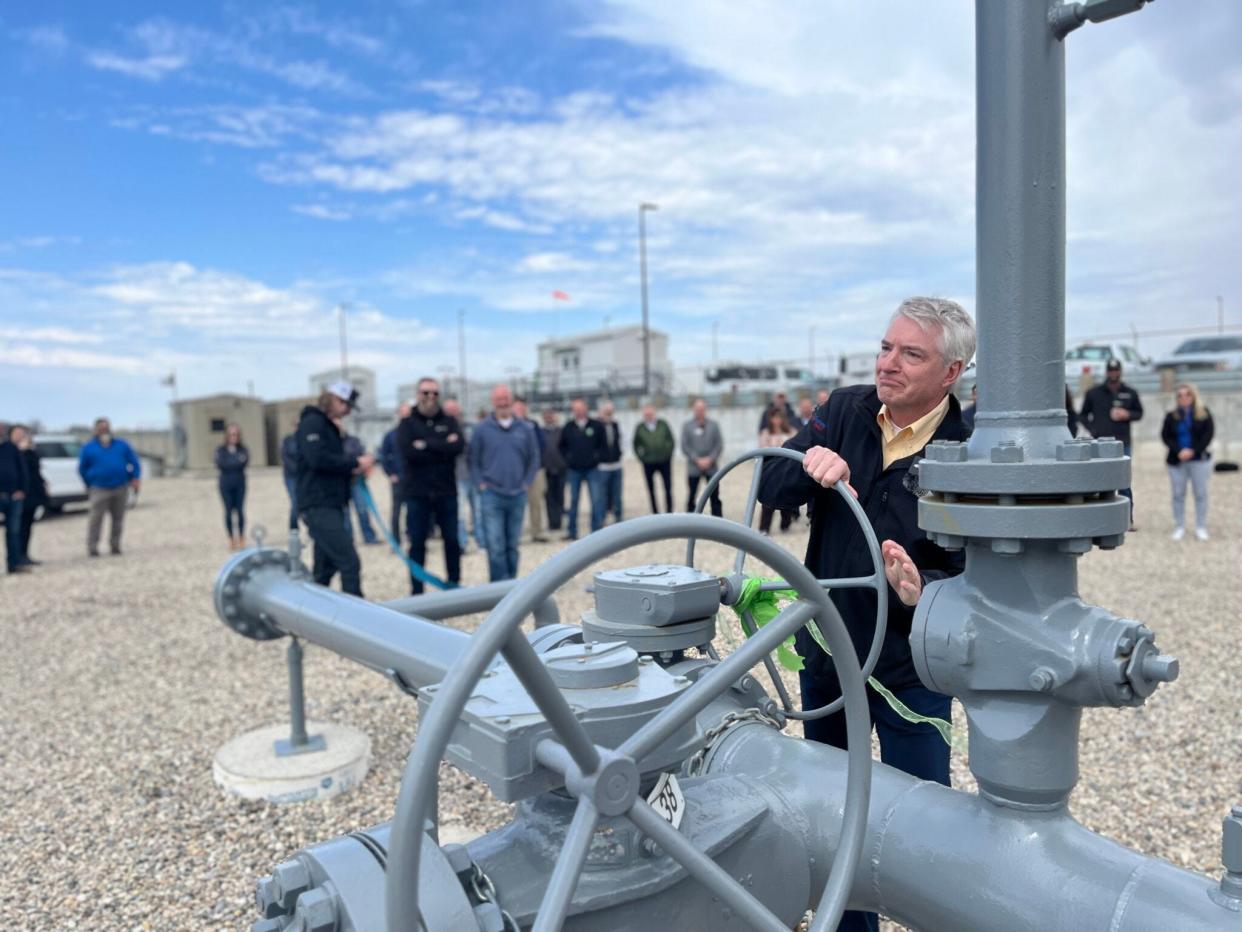Brookings facility using natural gas from cattle manure is first of several planned by utility

BROOKINGS — A new facility sending renewable natural gas made from dairy cattle manure to local energy customers could be the first of several such plants, a utility company said Monday while celebrating Earth Day.
Natural gas is mostly methane. It’s typically extracted by fracking and drilling into shale formations, and used to heat homes or to fuel power plants that generate electricity.
Turning dairy cow waste into pipeline-grade natural gas begins with collecting manure. The manure is transported to the dairies’ on-site tanks where the absence of oxygen facilitates the breakdown of the waste by microbes.
As the manure decomposes, it emits biogas. The biogas is captured and processed to remove moisture and carbon dioxide. Sulfur is also removed and turned into fertilizer for farm fields.
The processed biogas, comparable to natural gas, is shipped by truck to the utility company’s new injection site on the north edge of Brookings, to be injected into the local natural gas supply.
The utility company, NorthWestern Energy, provides electricity or natural gas to about 775,300 customers in South Dakota, Montana and Nebraska. A ceremonial valve turning was held Monday at the company’s injection site, which provides enough natural gas for about 10,000 residential customers annually in the immediate region, according to NorthWestern Energy CEO Brian Bird.
“We’re planning to add about five more of these projects by 2025, allowing us to serve about two-thirds of our South Dakota customers,” he said.
The project is part of NorthWestern’s goal to achieve net-zero emissions by 2050. The company contributed about $1 million to the project, a company spokesman said, while other partners funded other costs. The entire project, from the manure tanks and processing facilities to transportation and injection, cost about $150 million. The spokesman said the cost to produce renewable natural gas from cattle manure is the same as traditional production.
South Dakota Public Utilities Commissioner Chris Nelson attended the event. He called the project a “win, win, win” for the state.
“It’s a win for the dairy farmers because they have another product to sell, it’s a win for consumers because it’s another source of natural gas that doesn’t have to be shipped into South Dakota,” he said, “and it’s a win for the environment because that methane is no longer going up into the environment.”
Burning natural gas for energy results in fewer emissions of nearly all types of air pollutants and carbon dioxide emissions than burning coal or petroleum products, according to the U.S. Energy Information Administration. When uncaptured methane is released into the atmosphere, it’s more than 28 times as potent as carbon dioxide at trapping atmospheric heat.
Nelson said NorthWestern’s South Dakota service territory is along the Interstate 29 corridor, a region that has seen growth in the dairy industry. As of January, the total count of dairy cows in South Dakota was 208,000, according to the U.S. Department of Agriculture.
“That’s one of the reasons they’re on the leading edge of this,” Nelson said.
This article originally appeared on Sioux Falls Argus Leader: Brookings facility uses natural gas from cattle manure for energy
